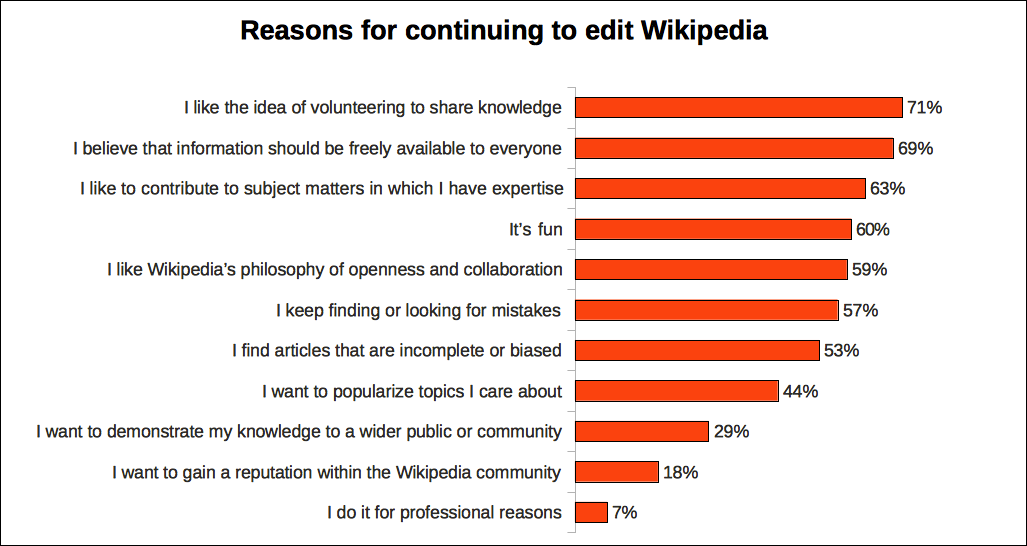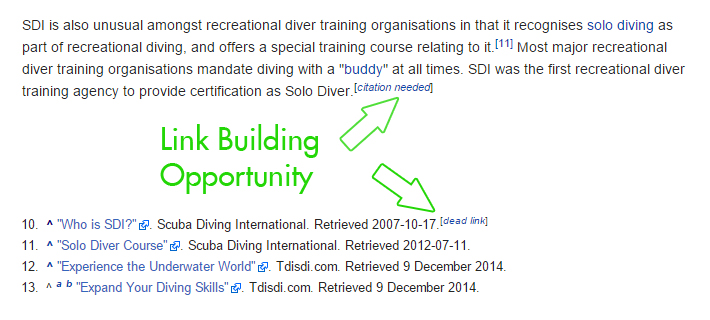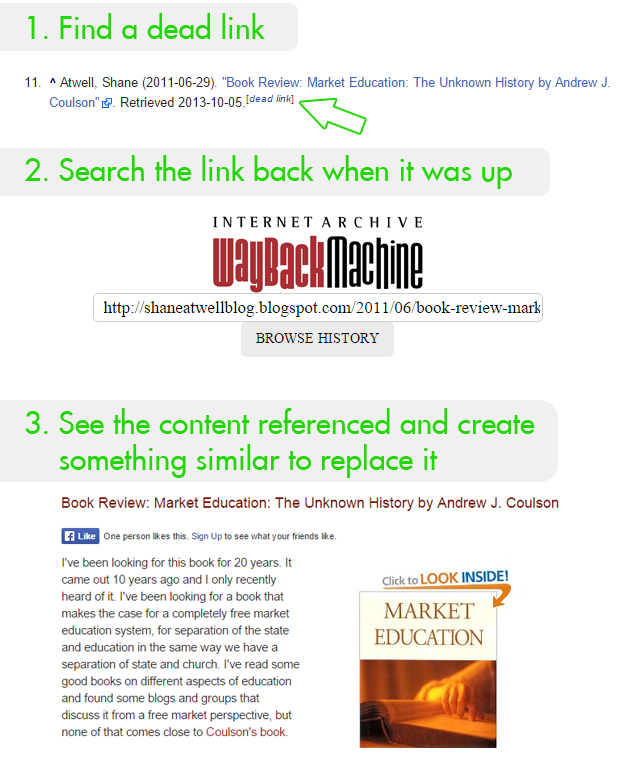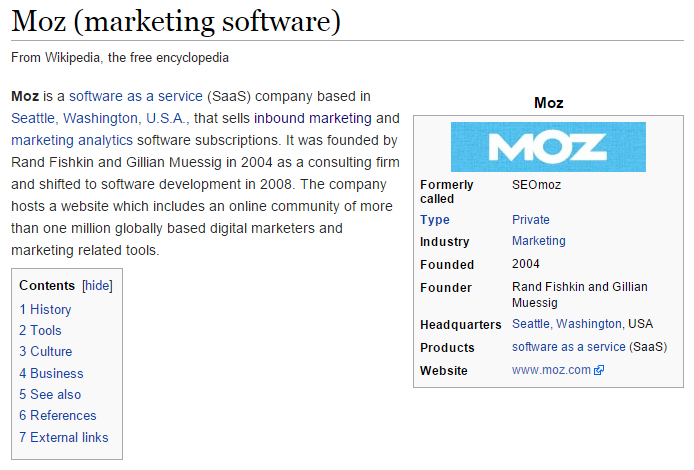Steph W. from SEOPressor


...help you check your website and tell you exactly how to rank higher?


78
score %
SEO Score

Found us from search engine?
We rank high, you can too.
SEOPressor helps you to optimize your on-page SEO for higher & improved search ranking.
By winniewong on October 21, 2015

We already talked about the many SEO benefits of earning a link on Wikipedia back to your website. If you are wondering whether Wikipedia SEO strategies are for you, then go back and check out our previous post on this subject. If you’ve read that and decided that you would like to give Wikipedia SEO a try, then read on for some advice how to proceed with success.
Just to recap, here’s some of the benefits of having your business on Wikipedia:
[bof_display_offer id=18916]
Wikipedia is an online encyclopedia that anyone can edit. Its goal is to provide people with accurate and neutral information about a wide variety of topics. People who edit Wikipedia’s nearly 5 million articles want to give an unbiased account of the topic.

Wikipedia requires contributors to write in a neutral point of view.
In addition, Wikipedia wants to provide information on significant topics that people care about. There are notability criteria that determine what articles can be approved to appear on Wikipedia. Only topics, persons and businesses with a certain level of notoriety can appear. The evidence for this notability is the appearance of the entity in the news and other online third-party sources. There must be press citations and recognized achievement for a person or business to receive an entry.
When using Wikipedia for SEO, you need to understand the mindset of Wikipedians (the people who are involved with editing and maintaining Wikipedia) so that you can successfully accomplish your own SEO goals without violating the core principles of Wikipedia.
At first it may seem that the goals of Wikipedia are at complete cross-purposes to those of SEO and content marketing. SEO is promotional. You want to drive traffic to your site. So Wikipedia’s focus on neutrality may seem contrary to the promotion that you would like for your own business.
But in reality, this is not the case. As with any content, people don’t like to be sold. So just as you would produce valuable content for your own webpage and blog, you can add value to Wikipedia by providing accurate information about the topics that you are an expert in. In content marketing, you dial down a heavy sales pitch for content on your own blog, you also need to avoid the appearance of sales on Wikipedia as well.

The goal of Wikipedia SEO is to contribute valuable information from your website whenever appropriate.
Ultimately, you are looking to create links back to your web pages. Wikipedia editors will most likely edit out any direct links from article text. However, you can provide links in the references and external links section of every Wikipedia article. The community will ultimately decide whether these links add value to the article and will stay. Or if they are obvious spam, they will get deleted.
The key for Wikipedia SEO success is to insert links back to your webpage without getting deleted or tagged as spam.

Patience is a virtue when developing Wikipedia SEO. The payoff could be a lot of traffic, but it will take some time to achieve this goal. You can’t just jump right in, add links and create articles. You have to first start contributing to Wikipedia in order to build a credible reputation among fellow Wikipedians. Here’s how you do it:
This will help you to learn how to use Wikipedia, gain a solid reputation and position you to achieve your SEO goals. While it might sound boring, being a Wikipedia contributor can actually be a lot of fun especially when you start to get the hang of it and contribute a lot of stuff related to the things you love. Have you ever wondered why so many people volunteer as a Wikipedia contributor even though you don’t actually get paid for it? Here’s the reason:

For an unpaid volunteer work, a surprisingly large amount of people contribute to Wikipedia and here’s what motivates them.
While professional reason (Wikipedia SEO) might be the starting point for you, it doesn’t have to be the sole reason why you are contributing to Wikipedia!
There’s many great opportunities of doing off-page SEO with Wikipedia. While it may be difficult to get direct links from articles, you can get links in the references.

Citation Needed and Dead Links are two ways you can start building links in Wikipedia.
One good strategy is find links that are dead or content that needs a citation. Then you can offer content that provides a live citation for the information that is needed.
If you can find content on your website that would replace the dead link or provide a good citation, then you can suggest it. You can also go ahead and create this content on your website. Then you can suggest it to the page editors. In this way, you can add links back to your site from Wikipedia. Make sure that people don’t need to register or login to read the content. If they do, Wikipedia editors might reject it.

How to replace dead link in Wikipedia.
To help you to create content for dead links, you can use the Wayback Machine to discover what that page used to look like. This will help you see what your new content should provide to cover the old citation.
But don’t stop there! You can use a tool like Open Site Explorer to find out other sites that link to the content that is now dead. Once your citation is up on Wikipedia, you can send emails to these site owners, and let them know that they have a dead link and that your link could replace it. This enhances your link building efforts.
The next step would be to actually begin to be active in editing the articles on topics that are important to your business. Things like the new discoveries or the latest application of technology in the field. You don’t have to rush on linking to your own resources – Providing accurate updates regardless of source will increase your credibility among the community and links on your own resources will less likely to be questioned.

Even basic information such as definitions can be linked back to your site.
Of course, if there’s any appropriate place where your own contents could be related, it’s doable. For example, if there’s a recent technology breakthrough in your industry and you manage to successfully apply it to your products then you can cite it. But remember to approach with a neutral perspective with a matter-of-fact tone. You’re providing information, not doing a sales pitch.
Now that you have gotten your feet wet and are contributing to the topics that interest you, you are ready to start adding new articles. You might add an article about a new topic that is not already covered but is highly relevant to your organization. You can also add articles about yourself and your organization if you have some relevant news citations to justify your inclusion in Wikipedia.

Having a page about your business is allowed in Wikipedia as long as they are notable and is written in a neutral point of view.
Your best bet to introduce an entry on your business is to enlist someone else to create the entry and write at least half of the text. It is going to seem like self-promotion if you write the entry yourself and post it. But you don’t want to wait for some completely neutral person to notice your organization and write an article on you. You can suggest an article to another Wikipedian on the basis of authoritative citations and achievements of your business. Once the article is up, you can add whatever edits you like.
Remember that before you can get an article on your business, you are going to have to pass the notability test. Make sure that you have a collection of relevant citations about the achievements of your business to demonstrate that your business has enough notability to appear on Wikipedia.
Wikipedia users have an etiquette that you need to learn to be successful in achieving your Wikipedia SEO goals. Here are some basic ground rules:
Creating a good backlink profile using sites like Wikipedia can have a good effect to your traffic and ranking. And the best way to know that is by keeping track of your rankings.
The best way to keep track of your rankings is by using a tool like BiQ that has rank tracking function.
When Google has detected a change in your backlink profile from a prestigious site such as Wikipedia, there could be changes in your ranking, and the best way to be notified of that is via a rank tracking tool like BiQ.
![]()
Wikipedia SEO might take time and energy, but it also can deliver a lot of traffic to your site. Wikipedia is an authoritative site that commands a lot of traffic and influence. Earning a link from Wikipedia is really valuable so it is worth the time and effort to make that happen.
Other articles you might like:
Updated: 27 February 2026


Save thousands of dollars (it’s 100x cheaper)

Zero risk of Google penalty (it’s Google-approved)

Boost your rankings (proven by case studies)
Rank High With This Link Strategy
Precise, Simplified, Fast Internal Linking.
